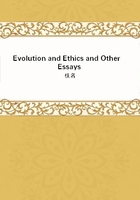
第34章
It is open to discussion, I think, whether it is possible to have "some notion" of that of which we can form no "idea."
Berkeley attaches several predicates to the "perceiving active being mind, spirit, soul or myself" It is said, for example, to be "indivisible, incorporeal, unextended, and incorruptible." The predicate indivisible, though negative in form, has highly positive consequences. For, if "perceiving active being" is strictly indivisible, man's soul must be one with the Divine spirit: which is good Hindu or Stoical doctrine, but hardly orthodox Christian philosophy. If, on the other hand, the "substance" of active perceiving "being" is actually divided into the one Divine and innumerable human entities, how can the predicate "indivisible" be rigorously applicable to it?
Taking the words cited, as they stand, the amount to the denial of the possibility of any knowledge of substance. "Matter" having been resolved into mere affections of "spirit", "spirit" melts away into an admittedly inconceivable and unknowable hypostasis of thought and power--consequently the existence of anything in the universe beyond a flow of phenomena is a purely hypothetical assumption. Indeed a pyrrhonist might raise the objection that if "esse" is "percipi" spirit itself can have no existence except as a perception, hypostatized into a "self," or as a perception of some other spirit.
In the former case, objective reality vanishes; in the latter, there would seem to be the need of an infinite series of spirits each perceiving the others.
It is curious to observe how very closely the phraseology of Berkeley sometimes approaches that of the Stoics: thus (cxlviii.) "It seems to be a general pretence of the unthinking herd that they cannot see God.
. . But, alas, we need only open our eyes to see the Sovereign Lord of all things with a more full and clear view, than we do any of our fellow-creatures . . . we do at all times and in all places perceive manifest tokens of the Divinity: everything we see, hear, feel, or any wise perceive by sense, being a sign or effect of the power of God" .
. . cxlix. "It is therefore plain, that nothing can be more evident to any one that is capable of the least reflection, than the existence of God, or a spirit who is intimately present to our minds, producing in them all that variety of ideas or sensations which continually affect us, on whom we have an absolute and entire dependence, in short, in whom we live and move and have our being." cl. "[But you will say hath Nature no share in the production of natural things, and must they all be ascribed to the immediate and sole operation of God? ... if by Nature is meant some being distinct from God, as well as from the laws of nature and things perceived by sense, I must confess that word is to me an empty sound, without any intelligible meaning annexed to it.] Nature in this acceptation is a vain Chimaera introduced by those heathens, who had not just notions of the omnipresence and infinite perfection of God."
Compare Seneca :
"Natura, inquit, haec mihi praestat. Non intelligis te, quum hoc dicis, mutare Nomen Deo? Quid enim est aliud Natura quam Deus, et divina ratio, toti mundo et partibus ejus inserta? Quoties voles tibi licet aliter hunc auctorem rerum nostrarum compellare, et Jovem illum optimum et maximum rite dices, et tonantem, et statorem: qui non, ut historici tradiderunt, ex eo quod post votum susceptum acies Romanorum fugientum stetit, sed quod stant beneficio ejus omnina, stator, stabilitorque est: hunc eundem et fatum si dixeris, non mentieris, nam quum fatum nihil aliud est, quam series implexa causarum, ille est prima omnium causa, ea qua caeterae pendent." It would appear, therefore, that the good Bishop is somewhat hard upon the "heathen," of whose words his own might be a paraphrase.
There is yet another direction in which Berkeley's philosophy, I will not say agrees with Gautama's, but at any rate helps to make a fundamental dogma of Buddhism intelligible.
"I find I can excite ideas in my mind at pleasure, and vary and shift the scene as often as I think fit. It is no more than willing, and straightway this or that idea arises in my fancy: and by the same power it is obliterated, and makes way for another. This making and unmaking of ideas doth very properly denominate the mind active.
This much is certain and grounded on experience.
A good many of us, I fancy, have reason to think that experience tells them very much the contrary; and are painfully familiar with the obsession of the mind by ideas which cannot be obliterated by any effort of the will and steadily refuse to make way for others. But what I desire to point out is that if Gautama was equally confident that he could "make and unmake" ideas--then, since he had resolved self into a group of ideal phantoms--the possibility of abolishing self by volition naturally followed.
According to Buddhism, the relation of one life to the next is merely that borne by the flame of one lamp to the flame of another lamp which is set alight by it. To the "Arahat" or adept "no outward form, no compound thing, no creature, no creator, no existence of any kind, must appear to be other than a temporary collocation of its component parts, fated inevitably to be dissolved."--(Rhys Davids, Hibbert Lectures, p. 211.)
The self is nothing but a group of phenomena held together by the desire of life; when that desire shall have ceased, "the Karma of that particular chain of lives will cease to influence any longer any distinct individual, and there will be no more birth; for birth, decay, and death, grief, lamentation, and despair will have come, so far as regards that chain of lives, for ever to an end."